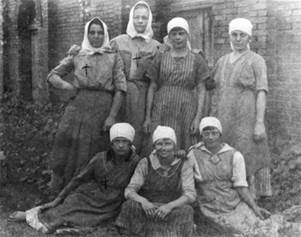La tradición socialista en este contexto cultural especial está íntimamente relacionada con la historia del Partido Obrero Socialdemócrata de Austria (SDWP; en alemán Sozialdemokratische Arbeiterpartei Österreichs, SDAPÖ) cuyo cuerpo teórico asociado se conoce comúnmente como austro-marxismo.
Descripción del estudio
La investigación se desarrollará en torno a cuatro ejes de trabajo:
a) Marxismo centroeuropeo. Debido a su carácter internacional, el SDWP unión dentro de él ramas nacionales que, incluso antes de la desintegración del represivo Imperio Austro-Húngaro, se convirtieron en partidos independientes y, posteriormente, desempeñaron un rol importante en sus respectivos estados nacionales. Examinaremos la cultura y la ideología del SDWP no como un fenómeno austríaco, como sugiere el término "austromarxismo", sino más bien como el socialismo en Europa Central que desarrolló una tradición marxista particular.
b) La Pequeña Internacional. Fundado en 1889, el Partido Obrero Socialdemócrata se consideraba a sí mismo como un partido internacional. Los debates que se desarrollaron en su marco comenzaron con las destacadas obras de Otto Bauer y Karl Renner, fundamentalmente en torno a los términos "autonomía nacional – cultural" y "principio de personalidad". Discutiremos si, y en qué medida, estos debates pueden convertirse en puntos de referencia para la política de la izquierda en medio de la crisis del modelo de integración de la Unión Europea y el nacionalismo desenfrenado relacionado con ella.
c) "Hogar de grandes hijas". Mientras que los nombres de Otto Bauer, Friedrich Adler, Bohumír Šmeral, Ignacy Daszyński y otros son famosos en la tradición socialista europea, las obras de Käthe Leichter, Therese Schlesinger, Adelheid Popp, Marie Jahoda, Hélène Bauer y otras socialistas apenas se conoce fuera, e incluso son muy poco conocidas dentro de los países de habla alemana. Pretendemos examinar sus trabajos con miras a sentar las bases del proyecto de investigación "Historia del trabajo de las mujeres bajo el capitalismo".
d) Conceptos de socialismo y estrategias transformadoras. Después de la I Guerra Mundial, el entonces SDAP, cuyo programa se inspiró en el austromarxismo, representó al 90% de la clase trabajadora austríaca. Su trabajo teórico, debido a esta enorme base de masas, planteó casi todas After the First World War the then SDAP, whose programme was inspired by Austro-Marxism, represented 90% of the Austrian working class. Its theoretical work, due to this enormous mass base, raised nearly all possible questions concerning a transformation to socialism (socialisation, the role of the state, democracy, economic democracy, and more). This wealth of theory and practical experience – whose symbol was ‘Red Vienna’ – deserves to be critically analysed and made available through translations of key works into English.
Working schedule 2020/2021
a) Publication of Bauer’s book ’The Austrian Revolution‘, (ed. by Baier und Canepa), to be released in November 2020 in the US
b) A meeting of experts in Vienna in the first half of 2021 to specify the further research strategy
c) The establishing of a network of interested researchers and institutions in Central Europe
d) The study of sources
e) The preparation of a forthcoming book on the theory of the state (translation work in 2021) to be released in 2022
f) The publication of a book with VSA-Verlag based on a conference to be held in autumn 2021
Requirements
o Young scholars or researchers from CEE, including Austria, with solid professional skills in identifying relevant sources and, analysis
o Work experience in the fields of history of the labour movement and/or political science.
o Capacity for teamwork and skills in organising events
o Sound German and/or English language skills; knowledge of a Slavic language (Czech or Polish) is desirable.
o Identification with the values and objectives of transform! europe and Rosa-Luxemburg-Stiftung
Timelines and deadline for tender submissions: 19 October 2020.
o Deadline for tender submissions: 19 October 2020.
o Notification of acceptance of the tender: 28 October 2020.
o The work is to be carried out between 1 November 2020 and 31 December 2021.
Remuneration
Euro 14.000 .The assistant shall be responsible for any taxation of the honorarium. The honorarium is to be paid in three instalments over the contract period.
Conditions
Candidates should send their application, including a short CV and a letter explaining their motivation for applying, by email to Walter Baier at baier@transform-network.net
The email’s subject line should include ‘APPLICATION: ”Socialism/Marxism in CEE”. Any questions can be sent by email to the same address.
About us
transform! europe is a network of 35 European organisations from 22 countries, active in the field of political education and critical scientific analysis, and is the recognised political foundation of the Party of the European Left (EL). This cooperative project of independent non-profit organisations, institutes, foundations and individuals intends to use its work to contribute to peaceful relations among peoples and a transformation of the contemporary world.
Rosa-Luxemburg-Stiftung is an internationally operating non-profit organisation for civic education affiliated with Germany’s Left Party. It is a discussion forum for progressive political alternatives and a centre for critical thinking and research, both in Germany and throughout the world. The Brussels Office operates as a think tank dealing with European and international issues affecting contemporary society.
